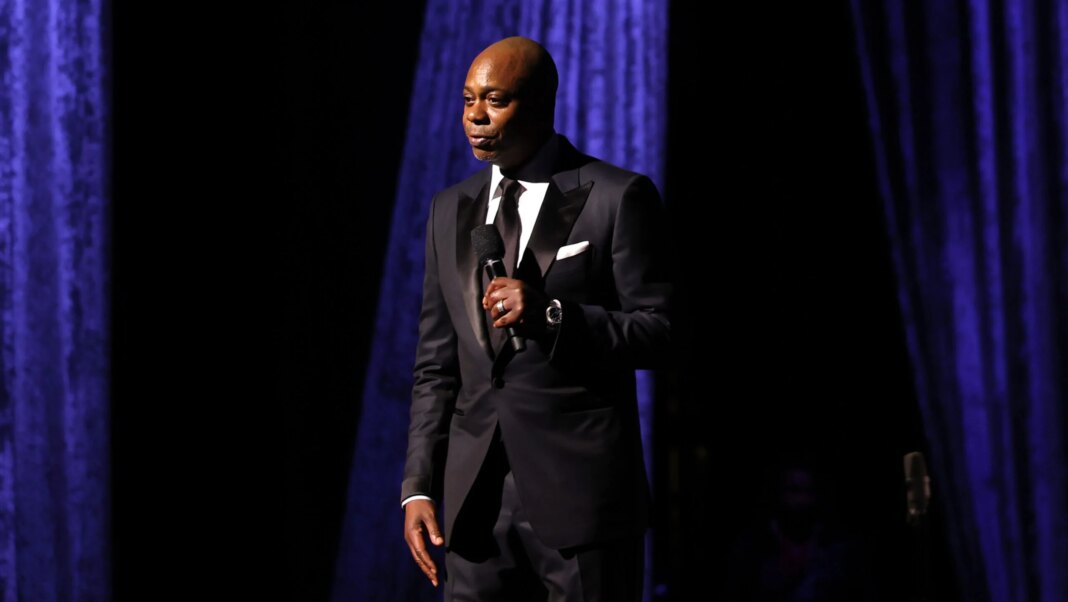The Comedy Paradox: Dave Chappelle in Saudi Arabia
A Historic Performance
On September 27, 2023, acclaimed comedian Dave Chappelle took the stage at the Riyadh Comedy Festival, a significant event aimed at transforming Saudi Arabia’s image as a burgeoning entertainment hotspot. As one of the headline acts in this newly envisioned cultural renaissance, Chappelle’s performance was not just another show; it was a focal point in the complex interplay between comedy, culture, and geopolitics.
Chappelle’s Provocative Statements
During his set, Chappelle made a striking observation regarding the state of comedy in the United States. “Right now in America, they say that if you talk about Charlie Kirk, that you’ll get canceled,” he remarked, suggesting that discussing controversial figures in the U.S. has become perilous. “I don’t know if that’s true, but I’m gonna find out.” Chappelle clearly framed his experience in Saudi Arabia as a freer space for comedic expression compared to America, stating, “It’s easier to talk here than it is in America.”
This comment resonated against the backdrop of the recent media landscape in the U.S., where comedians have found themselves under fire for their material, particularly surrounding sensitive political topics.
Critiques of American Comedy Culture
Chappelle’s assertions drew immediate attention, particularly in light of the backlash that comedians like Jimmy Kimmel have faced for making political jokes. Kimmel was briefly suspended from ABC for satirizing the Republican response to the death of conservative pundit Charlie Kirk—a move that has become emblematic of the U.S.’s increasingly polarized political environment. In this context, Chappelle’s comments about performing in Saudi Arabia being “easier” felt especially provocative and, to some, insensitive.
The Irony of Location
The irony of Chappelle’s remarks cannot be overstated. Saudi Arabia is known for its restrictive policies regarding free speech, especially on topics related to religion and politics. In a nation where criticism can lead to imprisonment, the suggestion that it was easier to perform there than in the U.S. raised eyebrows. Many perceived his comments as tone-deaf, signaling a disconnect from the reality faced by dissidents and activists who risk their freedom—and lives—merely for expressing their views.
The Riyadh Comedy Festival’s Background
The Riyadh Comedy Festival, which ran from September 26 to October 9, 2023, is more than just a gathering of comedians; it’s part of a broader initiative known as Vision 2030. This ambitious blueprint aims to diversify the Saudi economy and reshape its global image through entertainment and tourism. However, human rights advocates have criticized the festival as a form of “comedianwashing,” using entertainment to obscure the kingdom’s oppressive realities.
Mixed Reactions from the Comedy Community
While many noted comedians chose to abstain from participating in the festival due to concerns about Saudi Arabia’s human rights record, the event still boasted a lineup that included significant names: Kevin Hart, Chris Tucker, Wayne Brady, Bill Burr, Pete Davidson, Aziz Ansari, and Whitney Cummings, among others. The allure of performing on a grand international stage proved more compelling for some, despite the ethical concerns.
A Cultural Reflection
Chappelle’s comments and the festival itself served as a reflection of the changing landscape in comedy and culture globally. As comedians navigate increasingly fraught terrain in their home countries, platforms like the Riyadh Comedy Festival present both opportunities and challenges. The juxtaposition of comedic freedom and governmental restrictions raises significant questions about the role of art in society and how it interacts with political climates.
Through this lens, Chappelle’s performance became a microcosm of the tensions between free speech and the socio-political realities facing artists today—a scenario that will likely continue to unfold as global culture evolves.



